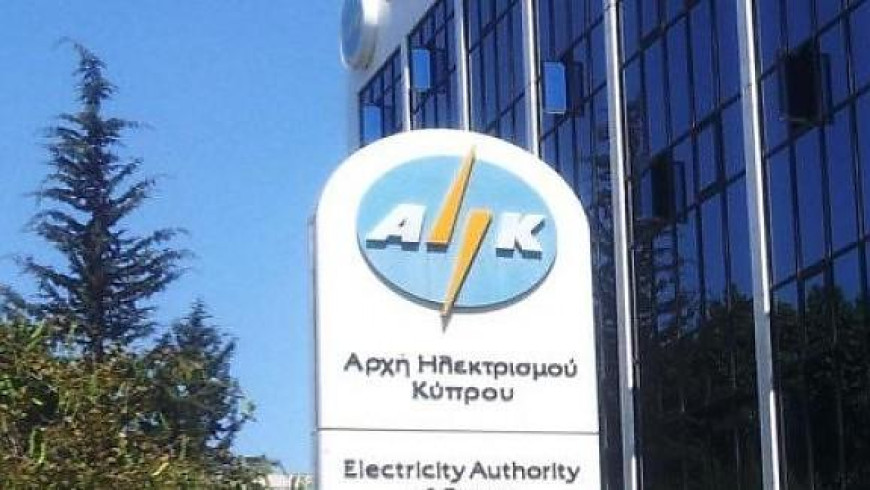Cyprus: Policies to Narrow Inequalities

Previous opinion pieces on Stockwatch have focused on the high and increasing economic inequalities in Cyprus and some of their consequences including the fact that the country is becoming a low wage economy. This piece focusses on recommended policies required to narrow economic inequalities, including those between the older and younger generations.
But, first a summary of economic inequalities pertinent to Cyprus and of some consequences stemming from them. Income inequalities are dominated by large differences between the incomes of public sector employees and private sector employees with the gross earnings of the former averaging over 3,000 euro per month in 2022, twice the level of the average incomes of private sector employees. And even in the private sector there are striking inequalities with employee incomes in the leading retail, tourism and construction sectors averaging less than half of corresponding incomes in the finance, and the information and communications technology (ICT) sectors. Indeed, with most private sector employees being paid pitiful incomes Cyprus has become a low wage economy.
However, in virtually all countries including Cyprus wealth inequality is much more severe than income inequality with tiny portions of the populations owning most of their country’s wealth. In truth, this is the case in Cyprus with the latest detailed data for 2017 showing that the wealthiest 10 per cent of households held 62.8 per cent of total net wealth (mainly real property and financial assets less debt), much higher than the euro area average of 51.9 per cent.
Income and wealth inequalities between the older and younger generations of Cyprus together with the surge in housing prices since the 1990s are causing profound consequences for the younger generation. Politically, older voters and their inheritors that own most of the wealth, who have benefited from massive property price rises, are likely to be increasingly pitted against younger voters, who have failed to get on the property ladder.
And, demographically, with low incomes and job security and being confronted with high housing and childcare costs, many young couples in Cyprus can’t afford to raise a family. In fact, the population of Cypriots is declining and Cypriot children now constitute a minority in primary schools.
In addition, many less-wealthy persons including young couples have tried to bridge the gap between their meagre incomes and high housing prices by resort to housing loans. But, unfortunately with the imposition of much higher interest rates the net wealth of these borrowers is being substantially reduced, making many more vulnerable to losing their properties through questionable foreclosure procedures. Indeed, Cyprus banks are exacerbating wealth inequality by selling foreclosed properties at very large discounts to wealthy entities including equity funds.
What can be done?
Personal income tax rates
Personal income tax rates are not sufficiently progressive with high-income earners being subject to a top marginal rate of just 35%. This is much lower than top marginal rates in Northern European countries and even well below the corresponding rates of over 44 per cent in Greece and 53 per cent in Spain.
And the impact of the recent rapid inflation on incomes has brought many lower and middle-income earners into higher tax brackets in most countries including Cyprus. In response countries such as Austria, Belgium and Luxemburg in Europe have adjusted upwards the income levels on which tax-free thresholds and higher tax rates apply.
Surely, in Cyprus there is a need to raise the tax-free threshold from the current level of annual personal income of 19,500 euro to say 22,000 to take account of the effects of inflation and to increase the top marginal rate to at least 45 per cent for annual incomes above 75,000 euro so as to bring about the more equitable taxation of personal incomes.
Taxes on wealth
The absence of taxes on wealth including a progressive central government tax on immovable property and on inheritances and gifts have contributed importantly to the high and increasing concentration of wealth among a small portion of households in Cyprus.
Accordingly, a central government progressive tax on immovable properties, including commercial establishments such as hotels, needs to be reintroduced as well as the levying of an inheritance tax to counteract widening inequality within the Cyprus population and its transmission across generations.
Despite the generous tax treatment of the property sector in Cyprus there is a growing housing crisis in Cyprus with much of the younger generation and students unable to afford decent housing. With investments in property being increasingly directed to attract foreign tourists, high income professionals, and investors/speculators, there is a need to tax owners of second homes used for Airbnb and non-resident owners of Cyprus immovable property valued over 200,000 euro more heavily. It is ridiculous that municipal council taxes in Cyprus range roughly from only 90 euro or less to 300 euro annually, depending on the size of the property.
Combatting massive tax evasion
Despite the huge amount of tax evasion in Cyprus with official tax arrears of around three billion euro and statements that tax evasion will not be tolerated, no government has shown any serious intent to tackle tax evasion. It can’t be over-stressed that this crime not only cheats the government out of revenue that could be used for assisting low- income households and the vulnerable, but allows the devious rich and the politically-connected to accumulate wealth faster and at the expense of honest tax-paying ordinary citizens. And tax evasion makes it harder for compliant businesses to be profitable when they are competing with businesses that do not bear the expense of paying their fair share of taxes.
Poor tax administration in Cyprus is most strikingly reflected in the huge time lag of around five years between the punctual lodging of personal income tax returns and receipt of their processing by the tax department stating the amount of taxes due. In Australia the corresponding time lag is around one month. Reducing such long-time lags, accurately processing and objectively auditing tax returns, and capturing more persons and corporations in the taxation net, will require fundamental reforms in tax policies and administration.
In this respect, a start could be made in assessing the accuracy of tax returns by estimating the taxable incomes of large companies and high-income professionals according to certain benchmarks along the lines practiced by many advanced countries including Austria, Belgium, France, Germany, Italy and Spain in the euro area. Under this bench-marking procedure the onus is placed on the relevant entities to prove they are not earning the taxable income estimated by the tax authorities.
Much greater efficiency in the collection, processing and auditing of tax returns will require the large recruitment of competent and moral persons to be employed as tax administrators. In addition, the Cyprus authorities should use available technology tools to fight types of tax evasion such as electronic sales suppression and over-reporting of deductions through false invoicing as well as taking measures to reduce the cash-based underground economy.
Furthermore, a simplification of tax forms and procedures for paying taxes should contribute to greater tax compliance and boosting the tax base.
Other Government Policies
To narrow the large gap between the compensation of public and private sector employees it will be necessary to contain the salaries and wages of government employees, especially of those with higher salaries, by limiting cost of living and regular incremental adjustments to employees with monthly gross incomes below 3,000 euro. And public servants as well as private sector employees earning above this income threshold should be subject to higher personal income tax rates.
Furthermore, increased exploitation of labor by private sector employers over the past few decades has suppressed the incomes and benefits of private sector employees and contributed to the old/young wealth divide in Cyprus. In this connection the government needs to ensure that employers pay minimum wages in line with hours worked. But, also the government needs to take initiatives to assess whether minimum wages are adequate for eking out a decent standard of living, that is a “living wage”, and in extending eligibility for minimum wages and cost of living adjustments to private sector employees in all sectors of the economy.
Government budgets should direct more resources to the construction and staffing of childcare facilities, for providing more welfare support for poorer families to catch-up with surging rents, and for financial assistance to younger persons for training in acquire jobs such as in carrying out ICT tasks where there is a shortage of labor supply.
With the public in Cyprus complaining about unaffordable housing costs, which are leading to some dire consequences as outlined above, the government needs to formulate a housing policy. Tax incentives, government contracts and expenditure policies need to be geared to constructing and renovating housing and related infrastructure such as playgrounds for lower income families as against promoting and facilitating the construction of luxury apartments and villas with generous tax breaks and granting of building permits, often corruptly allowing property developers to violate environmental and other regulations in the process.
Bank Policies
On bank policies as argued for some time housing loans valued at under 350,000 euro for prime residences and which are now categorized as non-performing should be written off allowing less wealthy indebted households to retain their properties. And resultant bank losses in excess of provisions should be amortized over many years in line with proposals of certain American economists[1].
[1] See, for example, Vague Richard, 2014, “The Next Economic Crisis: Why Its Coming and How to Avoid It”, University of Pennsylvania Press.







 3287.99
3287.99 1275.09
1275.09

